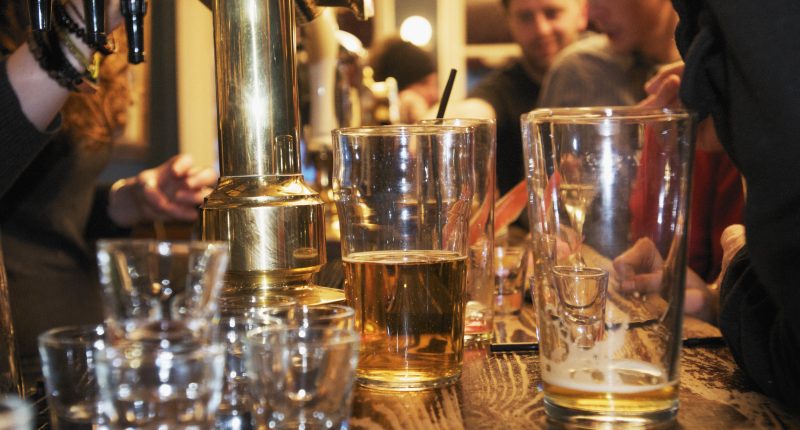A SMARTPHONE app will be able to tell if you’re too drunk to drive by listening to your voice.
Sensors in the smart devices could help determine a person’s level of alcohol intoxication based on changes in their voice, say scientists.
Participants in a study were each given a weight-based amount of alcohol and randomly assigned a series of tongue twisters – one before drinking, and one each hour up to seven hours afterwards.
They were asked to read the tongue twister aloud, and a smartphone was placed on a table to record their voices.
Researchers also measured their breath alcohol concentration at the beginning of the study and every 30 minutes for up to seven hours.
The research team used digital programmes to isolate the speaker’s voices, broke them into one-second increments, and analysed measures such as frequency and pitch.
Read more about phones
When checked against breath alcohol results, changes in the participants’ voice patterns as the experiment went on predicted alcohol intoxication with 98 per cent accuracy, according to the findings.
Researchers at Stanford Medicine in the United States and the University of Toronto in Canada conducted the study, involving 18 adults aged 21 or older, published in the Journal of Studies on Alcohol and Drugs.
Lead researcher Professor Brian Suffoletto, of Stanford Medicine, said: “The accuracy of our model genuinely took me by surprise.
“While we aren’t pioneers in highlighting the changes in speech characteristics during alcohol intoxication, I firmly believe our superior accuracy stems from our application of cutting-edge advancements in signal processing, acoustic analysis, and machine learning.”
Most read in Phones & Gadgets
Dr Suffoletto’s goal is to deliver “just-in-time interventions” to prevent injury and death resulting from car crashes or other accidents.
He says the best intervention tool would be easy to use and readily available – and the near-ubiquitous nature of smartphones and smart speakers make them an “obvious” tool for helping alert people that they’ve become intoxicated.
Dr Suffoletto said: “While one solution could be to frequently check in with someone to gauge their alcohol consumption, doing so could backfire by being annoying, at best, or by prompting drinking, at worst.
“So, imagine if we had a tool capable of passively sampling data from an individual as they went about their daily routines and surveil for changes that could indicate a drinking episode to know when they need help.”
Dr Suffoletto believes that surveillance tools may eventually combine several sensors – for example, gait, voice, and texting behaviour.
He said: “One primary reason is statistical: integrating test with varying sensitivities and specificities can elevate overall performance.
“Additionally, we cannot always depend on users to provide continuous data inputs.
“An individual might not speak for hours, but they could be walking.
“There might be instances where they’re stationary at a bar, neither walking nor talking, yet actively texting.”
He says much larger studies need to be done, on people with a wide variety of ethnic backgrounds, to confirm the validity of voice patterns as an indicator of intoxication.
Dr Suffoletto pointed out that it may also be helpful to build relationships with firms that are already collecting speech samples through smart speakers.
He sees the research as a “call to action” – and is urging health authorities to develop data repositories for such types of digital biomarkers.
Dr Suffoletto says the ultimate goal is to develop an intervention system that people are willing to use and can help prevent injuries and save lives.
He added: “Timing is paramount when targeting the optimal moment for receptivity and the relevance of real-time support.
Read More on The Sun
“For instance, as someone initiates drinking, a reminder of their consumption limits can be impactful.
“However, once they’re significantly intoxicated, the efficacy of such interventions diminishes.”
We pay for your stories! Do you have a story for The Sun Online Tech & Science team? Email us at [email protected]
This post first appeared on Thesun.co.uk











